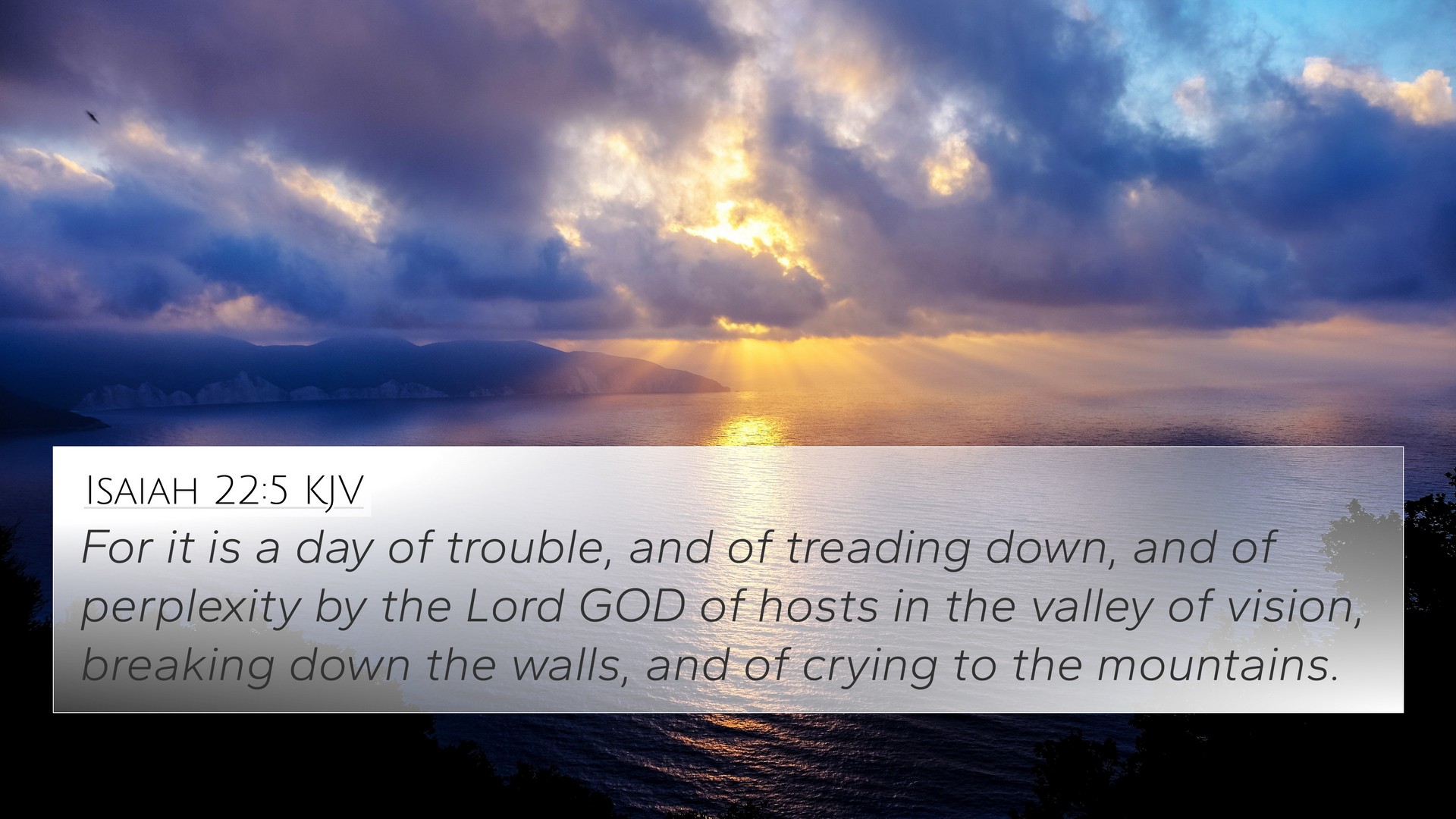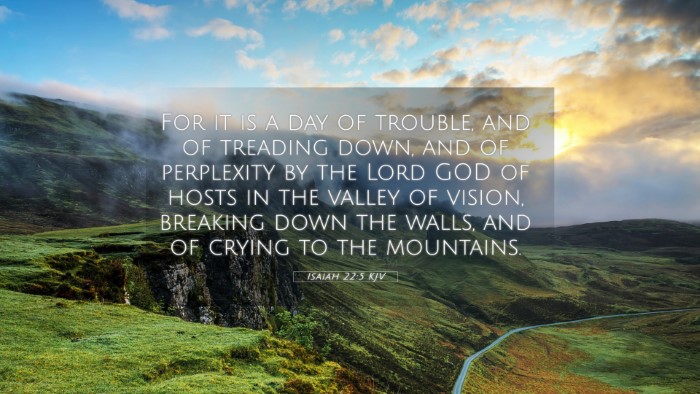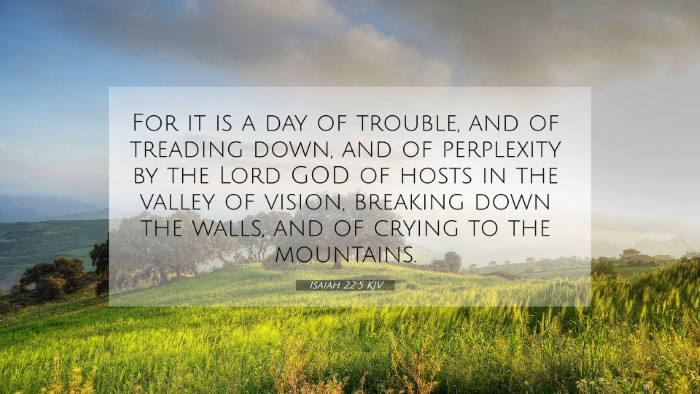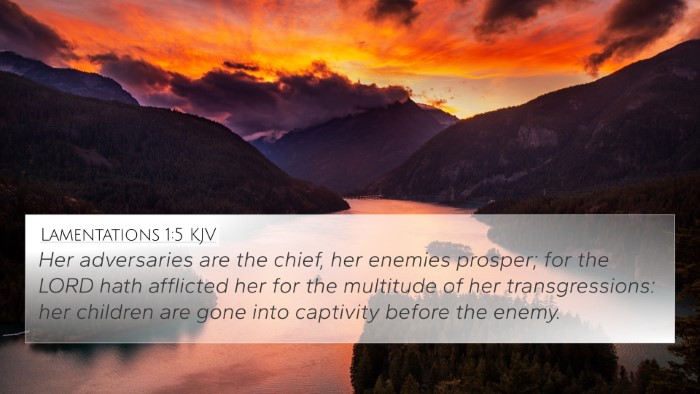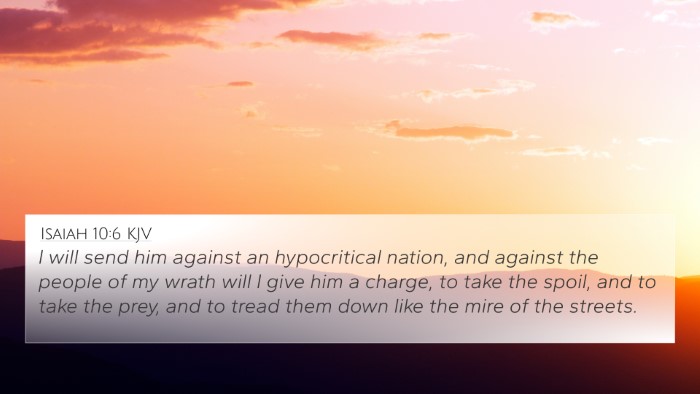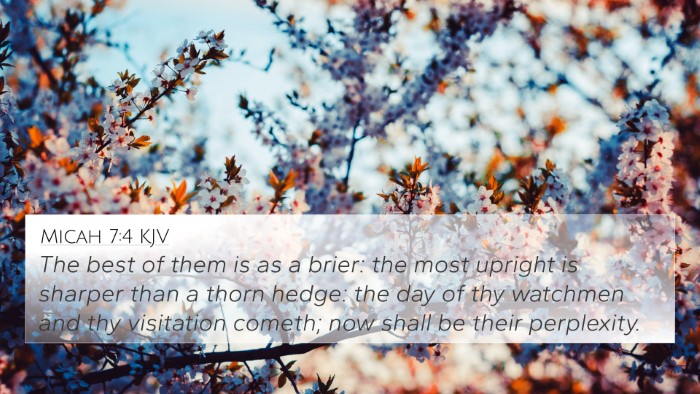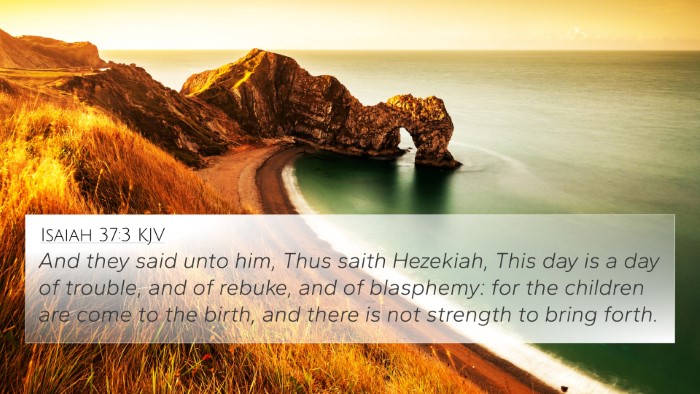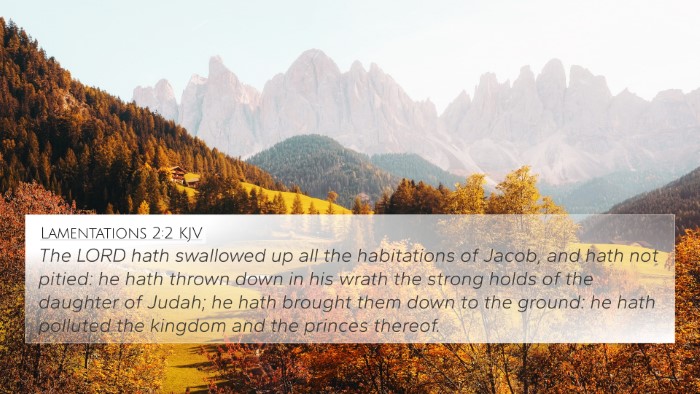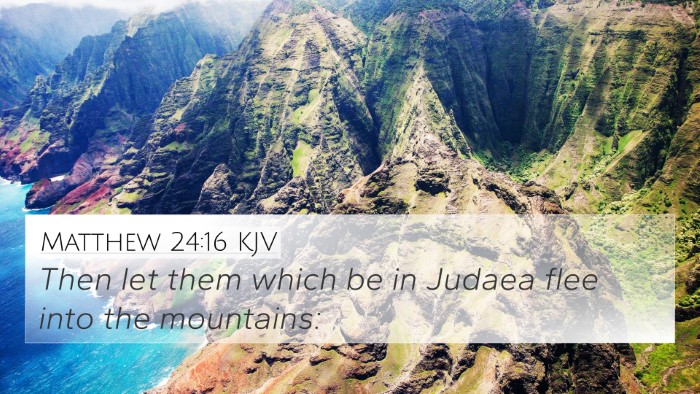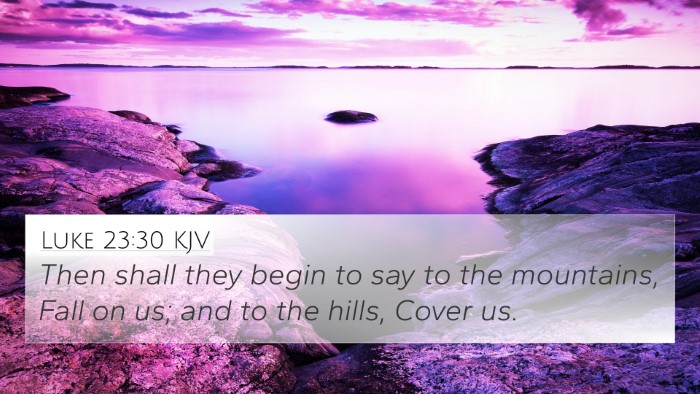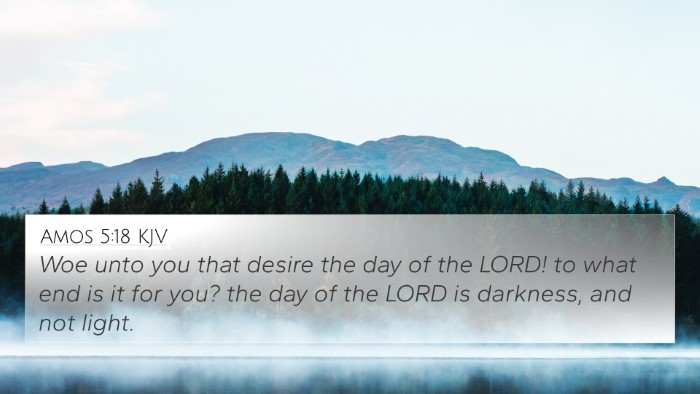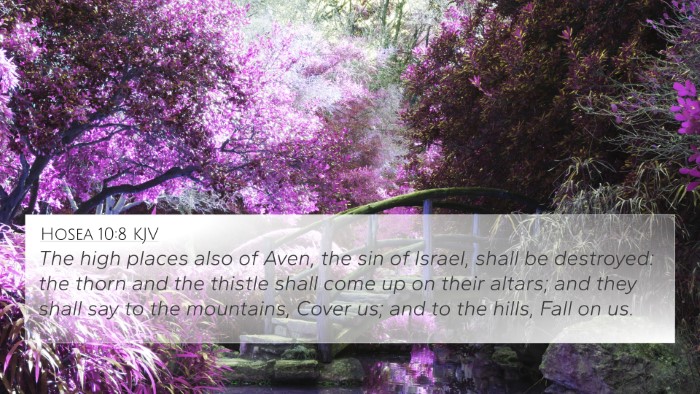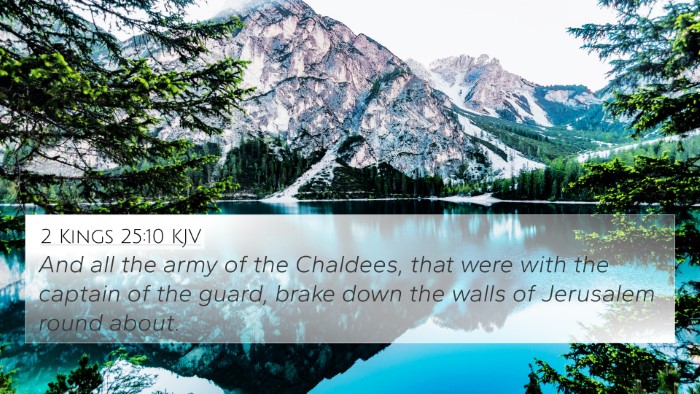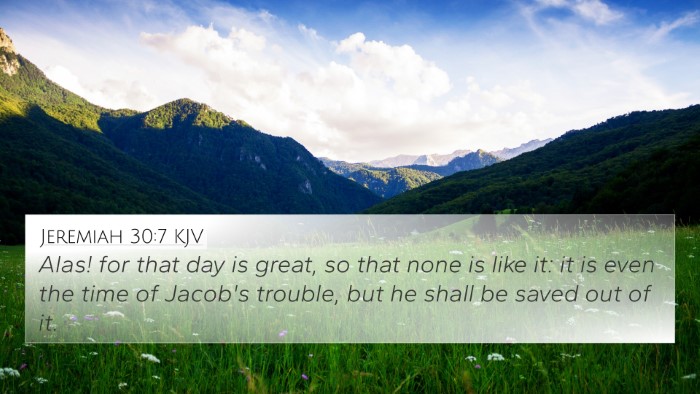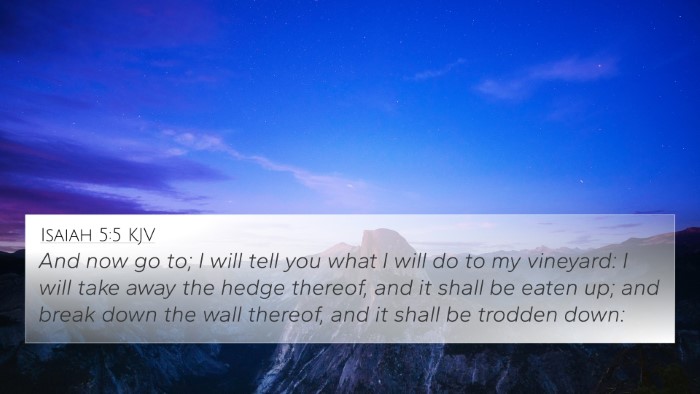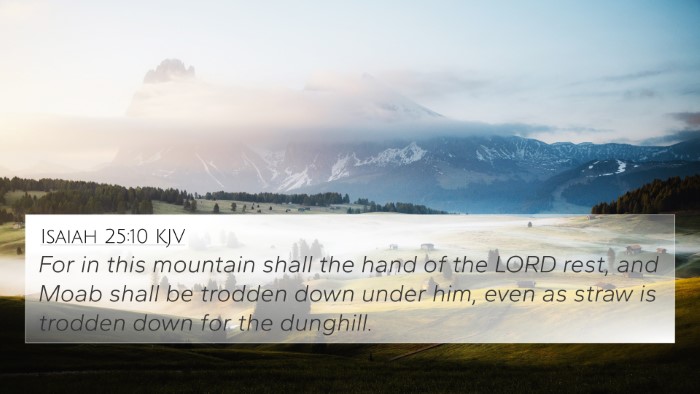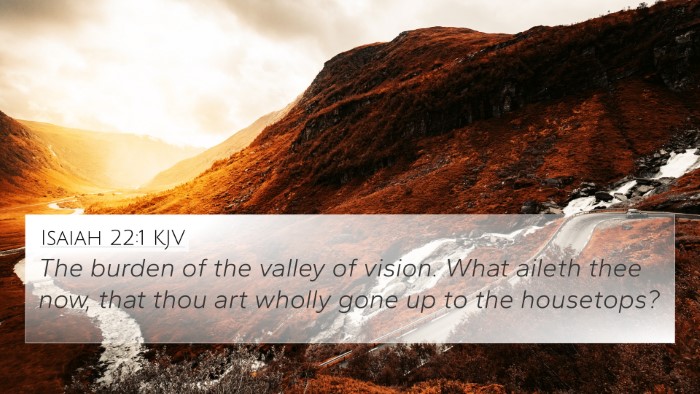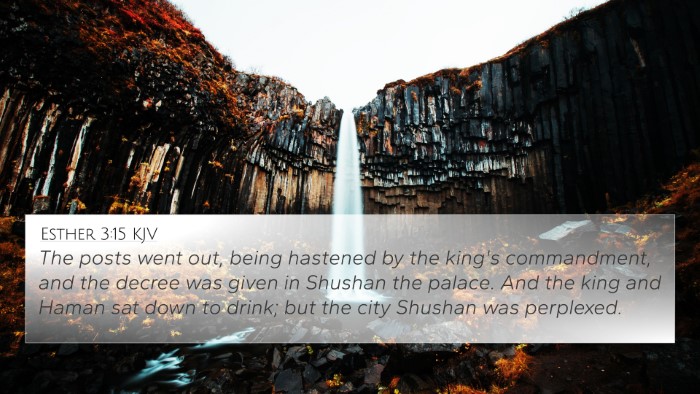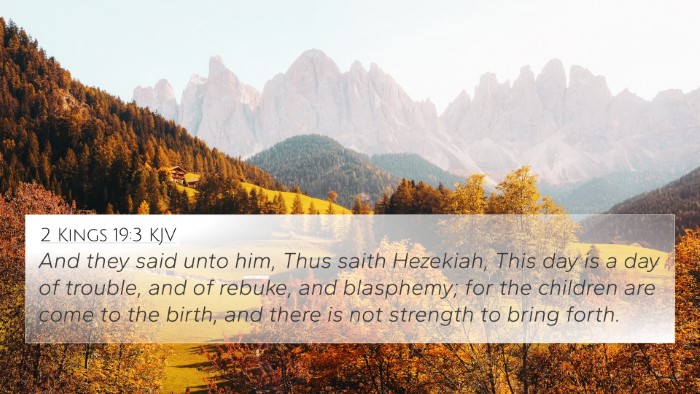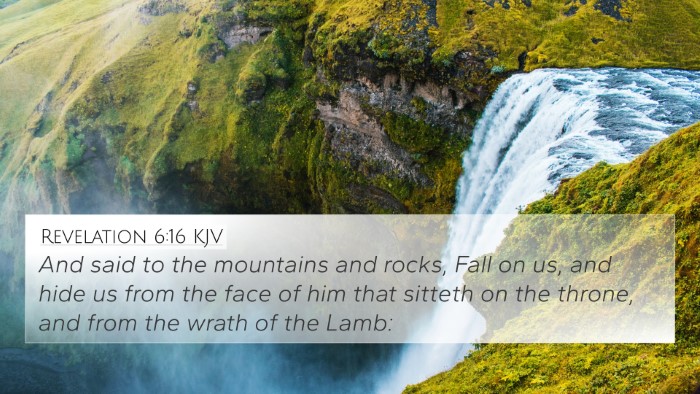Understanding Isaiah 22:5
Isaiah 22:5 states: "For it is a day of trouble and treading down, and perplexity by the Lord God of hosts in the valley of vision, breaking down the walls and crying to the mountains."
Summary and Context
This verse appears within a larger context where the prophet Isaiah addresses the impending judgment and calamity that would befall Jerusalem. The "day of trouble" symbolizes a time of distress and chaos, emphasizing the disastrous events that would disrupt ordinary life. The "valley of vision" may represent Jerusalem, noted for its significant spiritual oversight yet now facing judgment.
Insights from Public Domain Commentaries
-
Matthew Henry:
Henry emphasizes the theme of divine judgment, where the calamity foretold is a result of the people’s unrepentant state. The "crying to the mountains" indicates a heartfelt lamentation over destruction that is imminent and could have been avoided through repentance.
-
Albert Barnes:
Barnes elaborates on the "day of trouble" as not merely a physical tumult but also a spiritual one, where the people are depicted in confusion and despair at the realization of their sins. The breaking down of walls signifies safety being stripped away, leaving the populace vulnerable.
-
Adam Clarke:
Clarke notes that the "valley of vision" contrasts with the expected fortifications and safety of Zion. The prophecy conveys a strong message about reliance on God rather than military strength. The verse projects an imminent threat leading to an ultimate recognition of God’s sovereignty.
Thematic Bible Verse Connections
Isaiah 22:5 connects with various themes throughout Scripture. The following verses parallel the ideas presented in Isaiah regarding judgment, reliance on God, and the consequences of sin:
- Jeremiah 17:5-6: A warning against trusting in human strength over divine guidance.
- Amos 5:18-20: Prepping for the "day of the Lord," illustrating the darkness of divine judgment.
- Lamentations 1:1-5: A lament over Jerusalem's downfall, echoing themes of desolation.
- Micah 3:12: A prophetic warning that Zion’s future destruction is due to its leaders' actions.
- Ezekiel 33:1-9: The accountability of watchmen to warn of judgment, akin to Isaiah's role.
- Matthew 24:21: Jesus speaks of tribulation that has not existed before or will exist again.
- Revelation 3:19: The call to repentance that resonates throughout scripture during times of judgment.
Bible Verse Cross-References
The significance of Isaiah 22:5 can be deepened through careful examination of its connections with other Biblical texts. Here, we provide insights on cross-referencing these scriptures:
-
Tools for Bible Cross-Referencing:
Engaging with a Bible concordance allows for effective cross-reference examinations as shown in Isaiah, facilitating a richer understanding of themes across both the Old and New Testaments.
-
Identifying Connections:
Recognizing the thematic links between passages like Isaiah 22:5 and other prophetic writings invites more profound reflections on the nature of God’s justice and mercy.
-
Comparative Study:
A comparative study of Isaiah 22:5 with the lamentations in Lamentations provides insight into Jerusalem’s condition and God’s persistent call for repentance and reliance on Him.
Bible Cross-Reference Study Methods
Employing various methods for studying cross-referenced verses can enhance understanding:
- Contextual Analysis: Evaluating the historical and literary context of Isaiah 22:5 provides deeper insight into its implications and relevance.
- Thematic Grouping: Creating thematic clusters of verses aids in illuminating the broader narrative of redemption and judgment found throughout Scripture.
- Cross-Referenced Themes: Investigating themes of divine judgment and repentance's centrality across the Bible uncovers a cohesive message from Genesis to Revelation.
Final Thoughts
Isaiah 22:5 serves as a poignant reminder of the need for attentiveness to God’s voice in times of trouble. Through scriptural cross-referencing and understanding the deeper implications of this verse, believers can cultivate a more profound relationship with God, grounded in the recognition of His sovereignty and mercy amid judgment.
